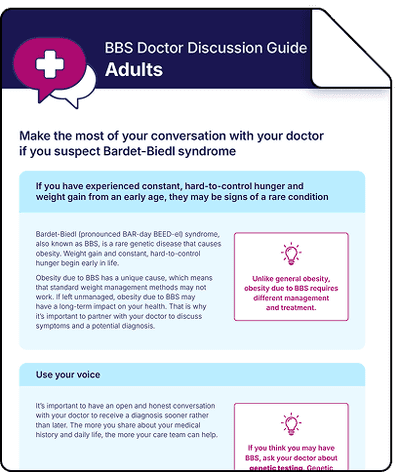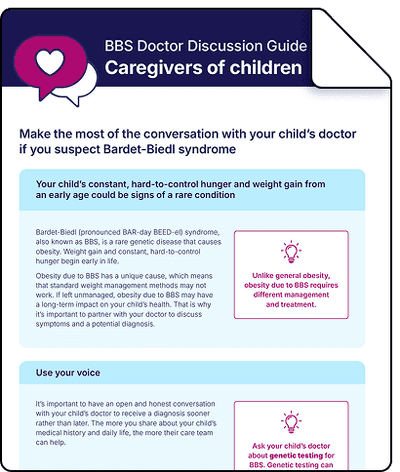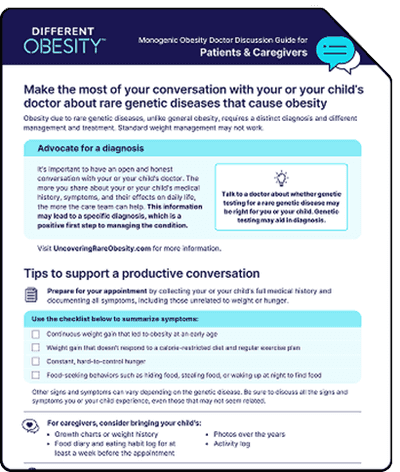Talk to your doctor
Starting the conversation with your doctor is the first step

The journey to diagnosis can be difficult
If you feel that you or a loved one may have a rare genetic condition that causes obesity, it’s important to talk to your doctor.
Your doctor will discuss:
- Symptoms
- Family medical history
- Diagnosis options, including if genetic testing may be useful for you
My big ‘aha’ was to listen to your gut and never worry about sounding like the ‘crazy mom.’ Because you know — you see your child every day."
Begin the conversation

It is important to advocate for your or your loved one's health. As you start your journey towards a diagnosis, you may find a doctor who knows about rare genetic conditions that cause obesity.
Your primary care doctor may already know about rare genetic diseases, or you may have a specialist who is part of your care team.
Find a doctor near youPrepare in advance
Here are some tips to help you have a productive conversation:
Collect documents
Bring your family medical history or photos to show how you or your loved one has experienced changes over time. This is very important as they may help your doctor understand the changes and evaluate your symptoms better.
Track your symptoms
Keep note of things like vision loss or challenges you may have with managing hunger, thoughts of food, and food-seeking behaviors. Tip: Keeping a food diary or journal can help you remember what you are eating throughout the day and how often you get hungry.
Talk about your goals and struggles
Write down your current weight management plan and treatments. Is your plan working for you? Is it sustainable? Also include the ways obesity and constant, hard-to-control hunger are affecting your life. This may include your sleep, work, family dynamic, or friendships. Sharing specifics can help your doctor differentiate what you are experiencing from general obesity.
Could it be Bardet-Biedl syndrome?
Download a doctor discussion guide to help you prepare for a conversation with your doctor.
Could it be a different rare genetic condition that causes obesity?
Download a doctor discussion guide to help you prepare for a conversation with your doctor.
Be your own advocate
During your appointment, keep these things in mind:
- Be open with your doctor when talking to them, ask questions as they come up, and advocate for yourself. Remember: The more information you share with your doctor, the better they will be able to help you
- Explain your symptoms and perspective on why you think you may have a rare genetic condition
- Ask questions to understand if genetic testing is right for you
- Talk about your next steps and what you would like to happen after this appointment. Knowing and communicating what you want can help you and your doctor determine the right plan


